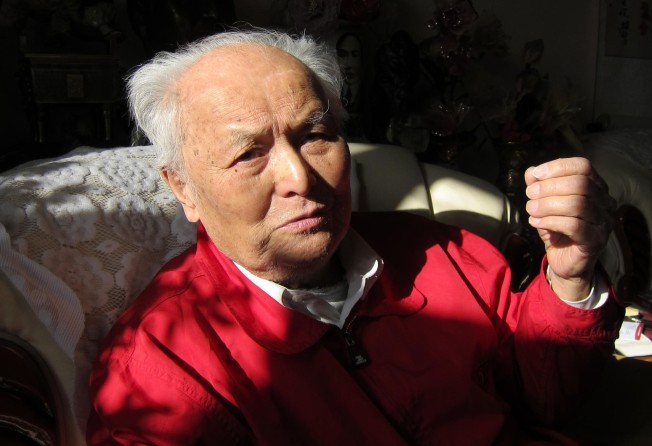Mao's former secretary Li Rui says you always had to agree with him

Mao Zedong was a master of mind control whose political influence remains powerful even today, says his former secretary Li Rui.
"Among all the leaders in the world, ancient and modern, what was most forceful about Mao Zedong was that when he was in power, he demanded everyone's thinking be in line with his," the 96-year-old says.
Li was a member of the powerful Central Committee and is a former deputy head of the Communist Party's Organisation Department.
According to him, Mao said on many occasions that he was "Emperor Qin and Marx in one", likening himself to an ancient ruler infamous for his dictatorial rule and brutality.
Those who didn't adapt to Mao's thinking were persecuted, such as President Liu Shaoqi , and this explains why his influence has remained, says Li, one of Mao's most vocal critics, with a rueful smile. "I've seen this in his notes from his early years: 'I am accountable only to myself'," Li says.
Li was vice-minister of Water Resources and Electric Power when Mao hand-picked him to be the chairman's personal secretary in 1958. He was stripped of his party membership and positions following the 1959 Lushan conference after he criticised the disastrous Great Leap Forward, which eventually killed at least 30 million people.
After that, Li was sent to a labour camp, where he nearly starved to death. He was later jailed for eight years during the Cultural Revolution.
For years, Li and other reformist party elders have repeatedly urged the new generation of leaders to implement political reform and constitutional rule. But they have been disappointed that party ideology has instead taken a conservative turn. "My China dream is a dream for constitutional governance," Li says.
He says the current leaders' fondness for Mao is not altogether surprising because they believe they must defend everything that he stood for. "No Mao, no new China," he says, quoting a well-known propaganda slogan.
"They were raised by the Communist Party, they grew up wearing red scarves," Li says. "Away from Mao, the Communist Party and Marxism, then they are not legitimate. They have to safeguard their origin."
After President Xi Jinping assumed power last year, he revived Mao's "mass line rectification" campaign, instructed officials to "promote self-criticism and criticism" and called for the revival of the "ideological purification" campaign. Earlier this year, a secret party document condemned seven subversive influences in society, including "Western constitutional democracy" and "universal values" such as human rights and free speech.
Li points to a recent state news article with the headline, "Mao Zedong was the great founder, explorer and pioneer of socialism with Chinese characteristics", which said Mao endorsed Marxism's leading position in the building of socialism in China. "Look, Marxism is still held up as the truth," he says, sighing.
Li and other reformist elders who risked jail under the Kuomintang regime seven decades ago to join the Communist Party say that the freedoms they clamoured for in their youth have yet to materialise.
"Although there was already an [official] consensus that the Cultural Revolution initiated by Mao was completely wrong, we still can't talk about it. We are not allowed to talk about past mistakes, the constitution movement or universal values," Li says.
Li complains that his five books on Mao are banned on the mainland. He laments that the Communist Party's recent third plenum, which traditionally sets the future direction of the country, still endorsed the "correctness" of the Communist Party, Mao and Marx. "This is the biggest problem now," he said.
But one comforting thought, he says, is that the past 30 years of economic reform have changed China dramatically from Mao's days when it was isolated from the world.
"What's good is that nowadays, it would be impossible to have another Mao Zedong," he says. "Inside or outside the party, high up or low down, people know more about our past history now.
"China's future cannot be separated from changes in the world … Things can only happen slowly in China."